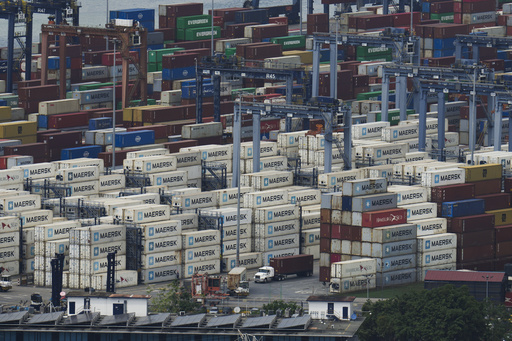
WASHINGTON — This weekend marks the beginning of Secretary of State Marco Rubio’s inaugural foreign trip while in office, as he heads to Central America to address one of President Donald Trump’s primary concerns — the reduction of illegal immigration. Rubio also aims to articulate America’s ambition to regain control over the Panama Canal, despite strong opposition from local leaders.
Traditionally, the first trip of a U.S. Secretary of State has been to regions like Europe or Asia, making this journey to Central America an unconventional choice. This destination underscores not only Rubio’s own interests as the first Hispanic to hold the country’s highest diplomatic position but also reflects the Trump administration’s strategic shift to prioritize its foreign policy within the Western Hemisphere. “It’s no coincidence that my initial overseas trip is within our hemisphere,” Rubio declared in a recent opinion piece.
Key components of Rubio’s mission include limiting immigration and combating drug trafficking; however, an additional critical goal is to counteract China’s rising influence in the Americas and assert U.S. authority over the Panama Canal. The canal, originally constructed by the U.S., was transferred to Panama in 1999, and Panamanian officials have expressed strong disapproval of Trump’s notion to regain control.
Rubio has identified mass migration, drug issues, and the antagonistic foreign policies of Cuba, Nicaragua, and Venezuela as significant challenges for the region. He noted that throughout these crises, “the Chinese Communist Party is exploiting diplomatic and economic tools—like those related to the Panama Canal—to undermine U.S. interests and convert sovereign nations into relationships of dependency.”
Rubio’s first stop on his five-nation itinerary will be in Panama, where President José Raúl Mulino firmly stated that there will be no talks regarding the canal ownership. Mulino expressed hope that Rubio’s trip would focus on enhancing collaboration on mutual interests, such as migration and drug interdiction. He firmly stated, “It’s impossible; I cannot negotiate. The canal belongs to Panama.”
In response, Rubio intends to clarify Trump’s position. During an interview, he explained that the desire to regain control of the Panama Canal is based on genuine national security concerns arising from increased Chinese involvement in the region. “We are going to discuss that topic,” Rubio mentioned. “The president clearly wants to manage the canal again, although this idea is not popular with Panamanians, and the message is already clear.”
The Secretary pointed out that China’s investments in infrastructure, especially at both ends of the canal, raise significant worries about Panama’s sovereignty and the canal’s operations. He expressed concern that if China wished to interfere with the canal’s operations, they would have the capability to do so, potentially breaching a treaty established in 1977 that facilitated the U.S. relinquishing control.
Despite President Mulino’s refusal to negotiate control, there are suggestions that Panama might consider a compromise regarding the operational aspects of the canal, perhaps distancing them from the Hong Kong-based Hutchison Ports company, which holds a 25-year no-bid extension for management. A current audit could lead to a reassessment and a potential rebid for the operational rights.
It remains ambiguous whether Trump would accept a transfer of operational control to an American or European firm as fulfilling his demands, which seem to go beyond operations alone. “In some respects, Trump may find some willingness from Panama to cooperate,” remarked Ryan Berg, director of an Americas program at a noted think tank. “However, this hinges on how his expectations are articulated.”
Rubio’s visit is scheduled for Saturday, where he will meet with President Mulino and other relevant officials the following day. His itinerary will also lead him through El Salvador, Costa Rica, Guatemala, and the Dominican Republic.
His arrival is notably timed with the U.S.’s recent restoration of visa processing at its embassy in Bogotá, Colombia, which had temporarily ceased operations following the Colombian government’s rejection of deportees from the U.S.
Historically, secretaries of state have traveled with “deliverables”—new initiatives or assistance packages to announce during visits. However, due to the current freeze on foreign aid initiated by Trump, Rubio’s capacity to provide substantial relief may be limited. He has ensured some life-saving assistance programs can continue despite the funding stoppage, with waivers for certain initiatives under evaluation in several countries on his itinerary, including Panama and Costa Rica. Though Rubio won’t visit Haiti, the State Department has allowed for the disbursement of $41 million designated to support an international peacekeeping mission there.

